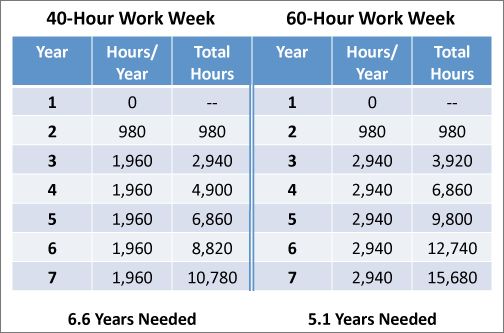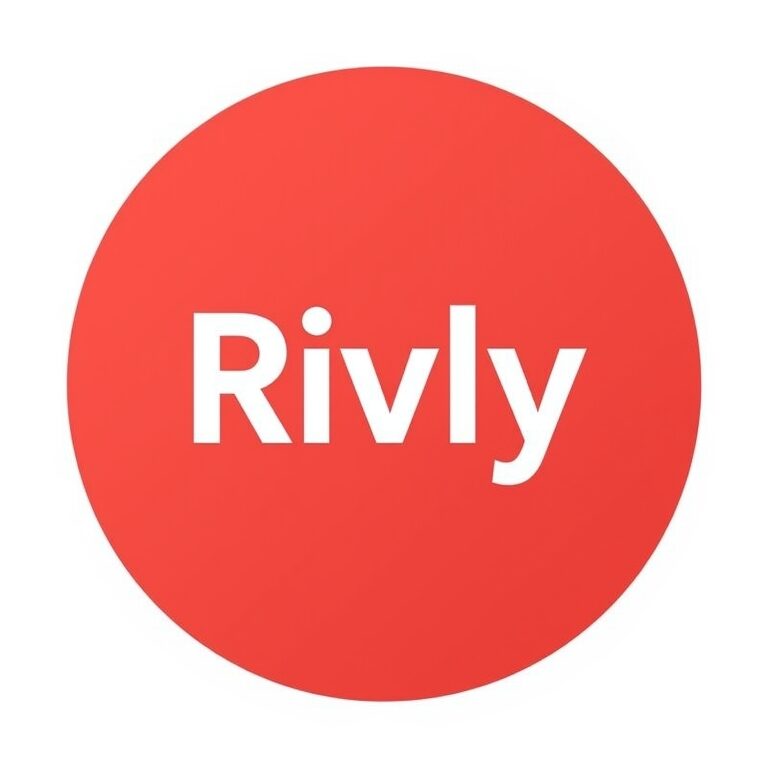Have you ever wondered how long it really takes to become an expert at something? Whether you want to master a new skill, advance your career, or simply improve yourself, knowing the timeline can help you stay motivated and focused.
The truth is, becoming an expert isn’t just about time—it’s about how you use that time. You’ll discover the key factors that influence expertise, realistic expectations for your progress, and practical tips to speed up your learning. Keep reading, and you’ll learn exactly what it takes to reach that expert level faster than you might think.

Credit: www.benchfly.com
Timeframes For Expertise
Becoming an expert takes time and effort. The time needed varies by field and personal factors. Understanding these timeframes helps set realistic goals. It also helps keep motivation strong during the learning journey.
Common Timelines In Different Fields
Some skills take years to develop. For example, learning a new language often takes 3 to 5 years of practice. Playing a musical instrument well can require 5 to 10 years. Sports skills depend on training and natural ability but usually take several years too.
Technical skills like coding might take 1 to 3 years to reach a high level. Cooking or photography can also take a few years to become very good. Each field has its own pace for growing expertise.
Factors Influencing Learning Speed
Practice quality affects how fast skills grow. Focused and regular practice leads to faster progress. Personal interest and passion boost learning speed. Those who enjoy the subject tend to spend more time learning.
Access to good teachers and resources also matters. Support and guidance shorten the learning curve. Age and previous experience can make a difference too. Younger learners often pick up new skills quicker, but adults can learn fast with the right methods.
The 10,000-hour Rule
The 10,000-Hour Rule is a famous idea about learning and skill. It says that to become very good at something, you need to practice for about 10,000 hours. This number has made many people think about how long it takes to become an expert.
Origins And Popularization
The rule comes from a study by psychologist K. Anders Ericsson. He studied how people become skilled in different fields. Later, author Malcolm Gladwell made the idea popular in his book “Outliers.” Gladwell explained that 10,000 hours of practice leads to high achievement. Many people started to believe this was the key to success.
Limitations And Criticisms
The 10,000-Hour Rule is not a strict law. Some experts say quality matters more than just hours. Practice should be focused and correct to improve skills. Genetics, talent, and opportunity also affect how fast you learn. Not everyone who practices 10,000 hours will become an expert. The rule is a rough guide, not a guarantee.
Deliberate Practice Techniques
Deliberate practice techniques help you become an expert faster. They focus on improving specific skills with clear goals. Practice alone does not make perfect. It must be planned and thoughtful. This method targets weaknesses and builds strengths step by step.
Focused Skill Improvement
Choose one skill to improve at a time. Break it into small, manageable parts. Work on these parts until you get better. Avoid doing many skills at once. Concentrate on what needs the most work. Repeating difficult tasks sharpens your ability. This focused effort leads to faster progress.
Feedback And Adjustment
Regular feedback is crucial for growth. It shows what you do well and what needs work. Use feedback from teachers, coaches, or recordings of yourself. Adjust your practice based on this input. Fix mistakes early to avoid bad habits. This cycle of feedback and change keeps your skills improving.

Credit: bakadesuyo.com
Role Of Mentorship
Mentorship plays a key role in becoming an expert. It offers direct help from someone with experience. Mentors share knowledge, advice, and real-world tips. This support guides learners through challenges and mistakes. Mentorship shapes skills faster than learning alone.
Having a mentor creates a clear path. It builds confidence and motivation. A mentor points out what to focus on. They help avoid common errors. This personal connection makes learning more effective.
Guidance And Support
Mentors provide clear guidance in complex areas. They explain concepts in simple ways. Mentors answer questions and solve doubts. They give feedback to improve skills. This support keeps learners on track. It reduces confusion and frustration.
Accelerating Growth
Mentorship speeds up the learning process. Mentors share shortcuts and best practices. They help set realistic goals. Learning from mistakes is faster with feedback. Mentors introduce useful tools and resources. Growth happens quicker with their advice.
Mindset And Motivation
Becoming an expert requires more than just time and practice. Mindset and motivation play a big role. A positive mental attitude helps you face challenges and keep learning. Staying motivated gives you the energy to keep going, even when progress feels slow.
Growth Mindset Benefits
A growth mindset means believing skills can improve with effort. It helps you see mistakes as chances to learn. This mindset builds resilience and encourages trying new things. People with this view push through difficulties instead of giving up. It makes learning more effective and faster over time.
Maintaining Long-term Commitment
Becoming an expert takes years of steady work. Staying committed means setting clear goals and routines. Small daily efforts add up to big progress. Motivation can dip, but discipline keeps you moving forward. Reminding yourself why you started helps maintain focus. Long-term commitment separates experts from casual learners.

Credit: www.zippia.com
Learning Strategies
Learning strategies shape how quickly someone becomes an expert. Effective learning is not just about time spent but how that time is used. Choosing the right methods can speed up skill growth and deepen understanding. This section explores key learning approaches to help you learn smarter, not harder.
Active Vs Passive Learning
Active learning means engaging directly with the material. It includes asking questions, practicing skills, and teaching others. This approach helps retain information longer and builds stronger skills.
Passive learning involves reading or listening without much interaction. It is easier but less effective for deep understanding. Active learning takes more effort but leads to better results.
Utilizing Varied Resources
Using different types of learning materials boosts knowledge. Books, videos, podcasts, and hands-on exercises each offer unique benefits. Variety keeps the brain interested and helps see topics from new angles.
Relying on just one source can limit growth. Mixing resources creates a richer learning experience and improves problem-solving skills.
Tracking Progress
Tracking progress is key to becoming an expert in any field. It helps you see how far you have come and what still needs work. Without tracking, you might feel stuck or unsure about your growth. Regular checks keep your motivation high and your efforts focused.
Setting Milestones
Milestones break your journey into small, clear steps. They make big goals easier to handle. For example, learning a new skill or completing a project can be a milestone. Each milestone shows real progress. Celebrate these wins to stay motivated and confident.
Adjusting Goals Over Time
Goals may need changes as you learn more. Your skills and interests can evolve. Adjusting goals keeps your path realistic and clear. It helps avoid frustration and burnout. Review your goals regularly and tweak them to match your growth. Flexibility leads to steady improvement.
Common Obstacles
Becoming an expert takes time and effort. Many face common obstacles on this journey. These challenges can slow progress and cause frustration. Knowing these obstacles helps prepare for them. Staying aware keeps motivation strong and focus clear.
Overcoming Plateaus
Progress may stop suddenly. This is called a plateau. It feels like no improvement happens. Skills stay the same despite practice. This can feel discouraging and boring.
Try changing your routine to move past plateaus. Practice different skills or methods. Take breaks to refresh your mind. Set small, clear goals to keep moving forward. Patience is key during these times.
Dealing With Burnout
Burnout happens after too much work without rest. It causes tiredness and loss of interest. Burnout makes learning harder and slows progress.
Balance work with rest to prevent burnout. Take time off to relax and recharge. Enjoy hobbies outside your main skill. Sleep well and eat healthy foods. Listening to your body helps keep energy up.
Frequently Asked Questions
How Long Does It Take To Become An Expert?
Becoming an expert typically takes 10,000 hours of focused practice. This process can span 5 to 10 years depending on dedication. Consistent learning and real-world experience accelerate mastery in any field.
What Factors Influence Expert-level Skill Development?
Skill development depends on practice quality, feedback, and motivation. Access to resources and mentors also plays a key role. Individual learning speed and passion directly impact the time required to become an expert.
Can Expertise Be Gained Faster With Deliberate Practice?
Yes, deliberate practice targets weaknesses and improves skills efficiently. It involves setting clear goals, seeking feedback, and refining techniques regularly. This focused approach shortens the path to expertise compared to casual practice.
Is Natural Talent Necessary To Become An Expert?
Natural talent helps but isn’t essential for expertise. Persistent effort, learning, and experience often outweigh innate ability. Many experts develop skills through dedication rather than relying solely on talent.
Conclusion
Becoming an expert takes time, practice, and patience. Consistent effort helps you learn and improve skills. Everyone’s journey is different, so avoid rushing the process. Small steps each day lead to big progress. Stay curious and keep challenging yourself. Experience and knowledge grow with each task you complete.
Remember, expertise is a path, not a quick destination. Keep going, and you will see results over time.
